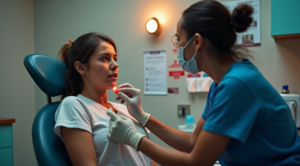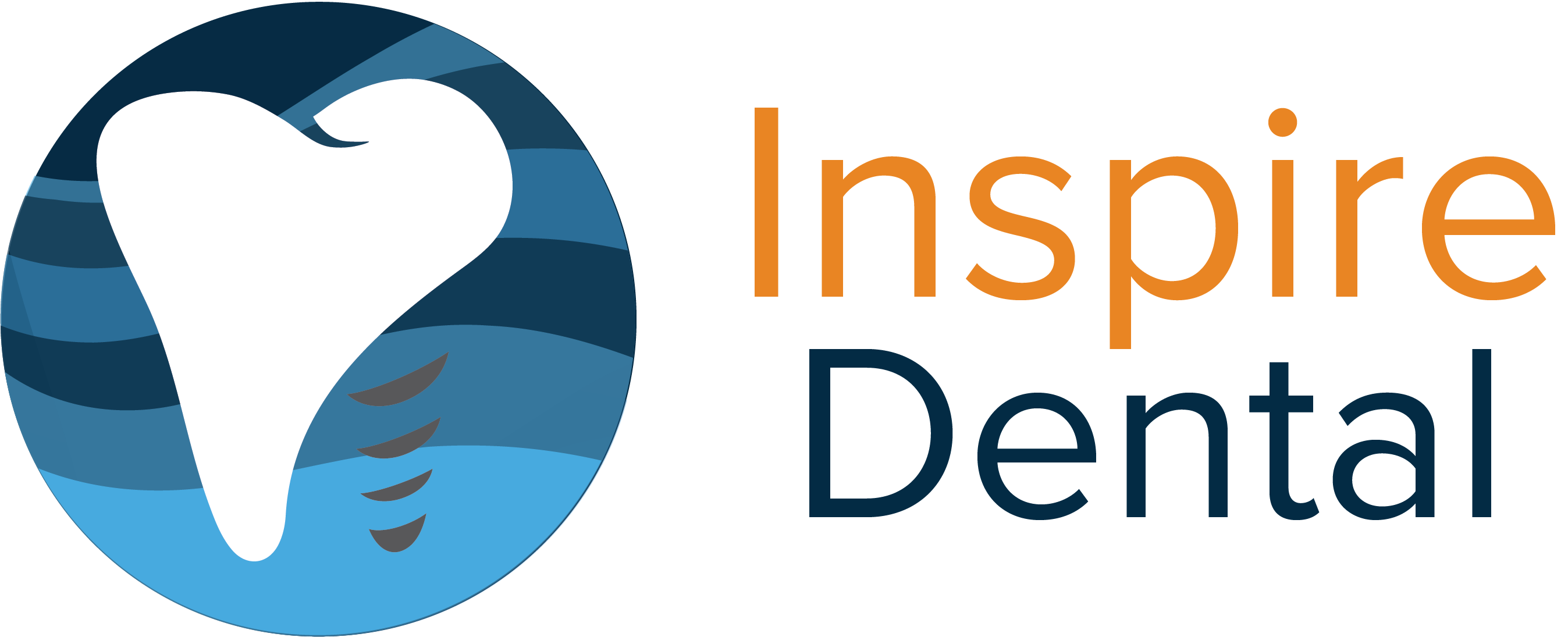When you face a dental emergency after regular office hours, don’t worry. Help is available. You can find care even late at night or on weekends. Knowing what to do can ease your pain and get you the help you need.
Key Takeaways
- Dental emergencies can happen anytime, even after hours.
- Common dental emergencies include severe pain, broken teeth, and lost fillings.
- You can call a local dentist for after-hours care or visit an emergency room.
- Many dental offices offer telehealth services for urgent issues.
- Being prepared can save you time and reduce stress.
- Consider exploring other family dentistry services for continued oral health.
Understanding After-Hours Dental Emergencies

Dental emergencies do not follow a schedule. They can happen when you least expect it, like during dinner or late at night. It’s important to know what qualifies as an emergency.
What Is a Dental Emergency?
A dental emergency is a situation that requires immediate care. Your teeth and mouth can be very sensitive. When you have pain, it can be hard to think clearly. Some emergencies include:
- Severe toothaches: When pain is intense, it may be due to a cavity or infection.
- Broken or chipped teeth: This can happen from accidents or biting hard food.
- Lost fillings or crowns: If these fall out, it can expose your tooth and create pain.
- Knocked-out teeth: This is a serious issue. Quick action can save the tooth.
- Gum injuries: Cuts or swelling can be serious and painful.
How to Identify an After-Hours Dental Emergencies
Not every dental issue is an emergency. If you can wait for your dentist to open, it’s okay. Here are some signs you should act fast:
- Your pain is sharp and constant.
- You see swelling or pus around your gums.
- You have trouble swallowing or breathing.
- A tooth is completely out.
If you notice these signs, you should seek care right away.
What to Do During an Emergency

In a dental emergency, staying calm is key. Here are steps you can take to get help quickly.
- Call Your Dentist
Most dental offices provide emergency contact numbers. If you are a regular patient, your dentist may offer after-hours care. Call their number first. A staff member can guide you on what to do next.
- Visit an Emergency Room
If you cannot reach your dentist, go to the nearest emergency room. They can help with severe pain and injuries. While they might not fix dental problems, they can treat pain and swelling.
- Use Telehealth Services
Some dentists offer telehealth services. This means you can talk to a dentist online. They can assess your problem and give you advice. This is especially useful for those who live far from a dental office.
- Manage Pain at Home
While waiting for help, you can try to ease your pain. Here are some tips:
- Rinse your mouth with warm salt water. This can help reduce swelling.
- Use a cold pack on your cheek to numb the area. Be careful not to put ice directly on your skin.
- Over-the-counter pain relievers can help. Follow the instructions on the package.
Common Dental Emergency Situations
| Dental Emergency | Symptoms | Immediate Actions |
|---|---|---|
| Severe Toothache | Throbbing pain, swelling | Call dentist, pain relief |
| Broken Tooth | Visible fracture, sharp pain | Keep pieces, rinse mouth |
| Lost Filling | Exposed tooth, sensitivity | Use dental cement |
| Knocked-Out Tooth | A tooth not in the socket | Store in milk, seek care |
Common After-Hours Dental Issues

Here are some of the most common problems people face after hours.
Severe Toothaches
A toothache can feel like a throbbing pain. It can stop you from sleeping or eating. If you have a severe toothache, check for these signs:
- Is your tooth sensitive to hot or cold?
- Is there swelling around your gums?
If yes, call your dentist. They may need to see you soon.
Broken or Chipped Teeth
Teeth can break from injuries or hard foods. If you break a tooth, keep the pieces. Rinse your mouth gently and call for help. Your dentist may be able to repair it.
Lost Fillings or Crowns
If a filling or crown falls out, this can expose the tooth. This can lead to pain and further damage. You can use dental cement from a pharmacy to cover the tooth until you see your dentist.
Knocked-Out Teeth
If your tooth gets knocked out, act fast. Pick up the tooth by the crown, not the root. Rinse it gently and try to put it back in the socket. If that doesn’t work, store it in milk or your saliva until you reach the dentist.
Gum Injuries
Cuts or swelling in your gums can be serious. If you have a gum injury, rinse your mouth and apply a cold pack. Call your dentist or visit an emergency room.
Additional Situations to Consider
- Tooth sensitivity to temperature changes.
- Persistent bad breath or unusual taste.
- Discomfort during chewing or biting.
Preparing for After-Hours Dental Emergencies

You can take steps now to prepare for a dental emergency. Being ready can help you act quickly.
Keep Important Numbers Handy
Write down your dentist’s emergency number. Keep it near your phone. This way, you won’t have to search for it during an emergency.
Create a Dental Emergency Kit
Having a small kit can make things easier. Include items like:
- Basic pain relievers
- A cold pack or ice pack
- Dental wax for temporary fixes
- Gauze for bleeding
Know Your Options
Research local dental offices that offer after-hours care. Knowing where to go can save time when you need help. You might also want to consider the benefits of regular family dental check-ups for long-term oral health.
Conclusion
After-hours dental emergencies can be scary. But knowing what to do can help you stay calm. Always call your dentist first. If they cannot help, visit an emergency room. Take care of your mouth and teeth every day to keep them healthy.
Final Thoughts
Dental emergencies can happen at any time. Being prepared can help you act fast. Remember, your local dentist is there to help. Don’t hesitate to reach out. Your smile is worth it!
Finding Help After Hours
Many people worry about getting care after hours. Fortunately, you have options. Keep your dentist’s number close. Use telehealth if you can’t make it to the office. Above all, remember that help is available, even when the sun goes down.
With these tips, you can ensure you are ready for any dental emergency. Feel free to visit our website or contact us now to take the first step towards a healthier, more active lifestyle! Your oral health is vital, and being informed is the first step to keeping your smile bright.
